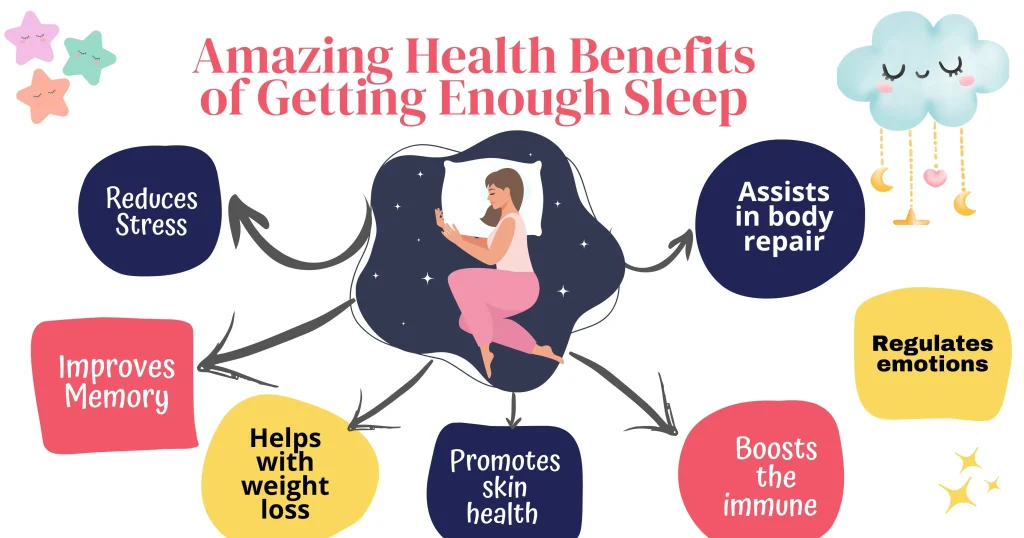Sleep and health are not luxuries but biological necessities that shape every facet of our lives. When sleep is disrupted, mood, thinking, metabolism, immune function, and long-term disease risk suffer, highlighting how sleep quality influences daily performance. A well-functioning circadian rhythm helps you feel alert by day and rest well by night. A practical, science-backed plan can guide you toward consistent rest without promising perfection, and it respects varying schedules and life demands, making sustainable change more likely. With steady effort, you can experience more energy, sharper memory, and a stronger immune system through better sleep.
Viewed through a broader lens, the same idea speaks to how rest supports mood, memory, and metabolic health, not merely the number of hours spent in bed. The body’s sleep-wake cycle, or biological clock, responds to light, meals, and activity, guiding when we feel alert and when we drift toward calm. When this cycle is out of sync, worries, caffeine late in the day, or stress can derail nights, making insomnia relief a realistic, achievable aim through evidence-based strategies. By embracing the concept of restful, consistent sleep across routines, you empower daily resilience and better long-term health.
Sleep and health: Aligning Circadian Rhythm for Restful Nights
Sleep and health are deeply interconnected. When the circadian rhythm stays synchronized—with regular daytime light exposure and darkness at night—hormones regulate mood, metabolism, and cognitive performance, supporting overall well-being. Prioritizing sleep quality through consistent routines helps protect immunity, energy levels, and emotional resilience, making it a foundation rather than an afterthought in daily life.
To promote healthy sleep, start with actionable steps that reinforce your circadian rhythm and sleep hygiene. Establish a stable schedule for bed and wake times, create a cool, dark, and quiet sleep environment, and limit bright screens before bed. These practices improve sleep quality and support the body’s natural processes, turning restful nights into a sustainable habit rather than a rare exception.
Incorporating daytime activity and mindful light exposure further strengthens Sleep and health. Try morning outdoor light, moderate exercise earlier in the day, and dim evening lighting to ease the transition to sleep. By integrating circadian rhythm-friendly choices into daily life, you cultivate healthy sleep habits and reduce susceptibility to sleep disruptions.
Insomnia relief: Strategies rooted in Sleep Hygiene and Healthy Sleep Habits
Insomnia relief often begins with robust sleep hygiene and the cultivation of healthy sleep habits. Rather than chasing perfection, focus on sustainable patterns that ease sleep onset and preserve deep, restorative sleep. Cognitive strategies, relaxation techniques, and behavioral adjustments—core elements of CBT-I—address thoughts and routines that fuel wakefulness, guiding you toward lasting improvements in sleep quality.
Practical steps for ongoing insomnia relief include managing caffeine and alcohol intake, timing meals, and building a calming pre-sleep routine. Create an environment that minimizes awakenings—cool, dark, and quiet—while ensuring daytime light exposure and gentle evening wind-down. If sleep problems persist, seek professional evaluation to explore potential sleep disorders and tailor an evidence-based plan that reinforces sleep hygiene and healthy sleep habits for durable, restorative rest.
Frequently Asked Questions
How does Sleep and health relate to sleep quality, and what practical steps can I take to improve sleep quality within a healthy sleep plan?
Sleep and health are deeply interconnected, and better sleep quality supports mood, memory, metabolism, and immune function. To improve sleep quality, focus on a consistent schedule, optimize sleep hygiene (cool, dark, quiet bedroom, comfortable bedding), limit late caffeine and meals, increase daytime light exposure, and maintain healthy sleep habits that reinforce your circadian rhythm.
What insomnia relief strategies best support Sleep and health by aligning with circadian rhythm and healthy sleep habits?
For insomnia relief, use evidence-based approaches such as CBT-I techniques and relaxation exercises. Protect Sleep and health by keeping regular bedtimes and wake times, getting bright morning light, minimizing evening screen time, and following a calming pre-sleep routine along with other healthy sleep habits to support your circadian rhythm.
| Topic | Key Points |
|---|---|
| Why sleep matters | Sleep is a biological necessity that touches mood, thinking, metabolism, immune function, and long-term disease risk when disrupted. |
| Sleep and health relationship | Adequate sleep helps regulate hormones, support metabolic functioning, and maintain cognitive performance. Chronic sleep deprivation is linked to higher risks of obesity, type 2 diabetes, cardiovascular disease, and mental health disorders. Restorative sleep improves mood, resilience, and daily functioning. The goal is a sustainable pattern that fits your lifestyle. |
| Five core elements for restful nights |
|
| A Complete Plan for Restful Nights (10 steps) |
|
| Practical tips and tools |
|
| Healthy sleep habits in daily life |
|
| Role of circadian rhythm | Circadian rhythm is the body’s 24-hour cycle governing wakefulness and sleep. Light exposure, meal timing, activity, and temperature influence it. Disruptions (shift work, jet lag, excessive evening screens) can impair sleep quality and health. Aligning daily activities supports hormonal balance, tissue repair, memory consolidation, and metabolic health. |
| Common myths and misconceptions |
|
| Final thought | Sleep and health are deeply interconnected, and a complete plan for restful nights is not a one-size-fits-all prescription. The path to better sleep involves thoughtful experimentation, patience, and consistent habits. By focusing on circadian rhythm alignment, robust sleep hygiene, and healthy sleep habits, you can move toward a higher baseline of daytime functioning and well-being. |
Summary
The table above summarizes the key points about Sleep and health in English.

